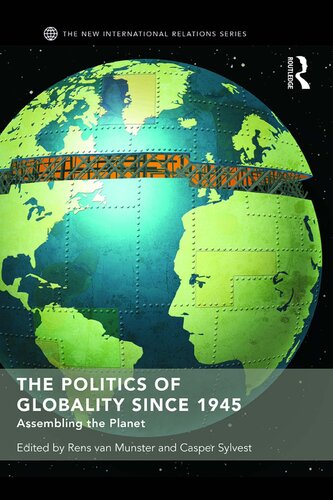

Most ebook files are in PDF format, so you can easily read them using various software such as Foxit Reader or directly on the Google Chrome browser.
Some ebook files are released by publishers in other formats such as .awz, .mobi, .epub, .fb2, etc. You may need to install specific software to read these formats on mobile/PC, such as Calibre.
Please read the tutorial at this link: https://ebookbell.com/faq
We offer FREE conversion to the popular formats you request; however, this may take some time. Therefore, right after payment, please email us, and we will try to provide the service as quickly as possible.
For some exceptional file formats or broken links (if any), please refrain from opening any disputes. Instead, email us first, and we will try to assist within a maximum of 6 hours.
EbookBell Team

4.1
40 reviewsThis timely, comprehensive and interdisciplinary volume advances an original argument about the complex roots and multiple politics of globality. It shows that technological innovations and decisive developments since 1945 – from the nuclear revolution to anthropogenic climate change and debates about the Anthropocene – have prompted reflections on the global condition of humanity and helped reshape political communities by making the world (appear) small, manageable and interconnected.
The contributors stress how human beings have transformed both their habitat and their view of human-earth relations since 1945. Such changes have been accompanied by important shifts in political visions, prompted new forms of human association, encouraged legal and institutional reform and spurred ideas about ecological humility. At the same time, the spatially all-encompassing nature of globality have also informed projects of human mastery and a range of practices historically associated with militarization and a strongly statist conception of national security. This volume reflects on these paradoxical relationships, their history and contemporary relevance.
Contributing to the overlapping concerns of four burgeoning fields of study across the humanities and the social sciences - globality and globalization studies; geopolitics and political geography; Anthropocene studies; global governance and political theory – the book will be of great use to scholars and graduates working in these areas.